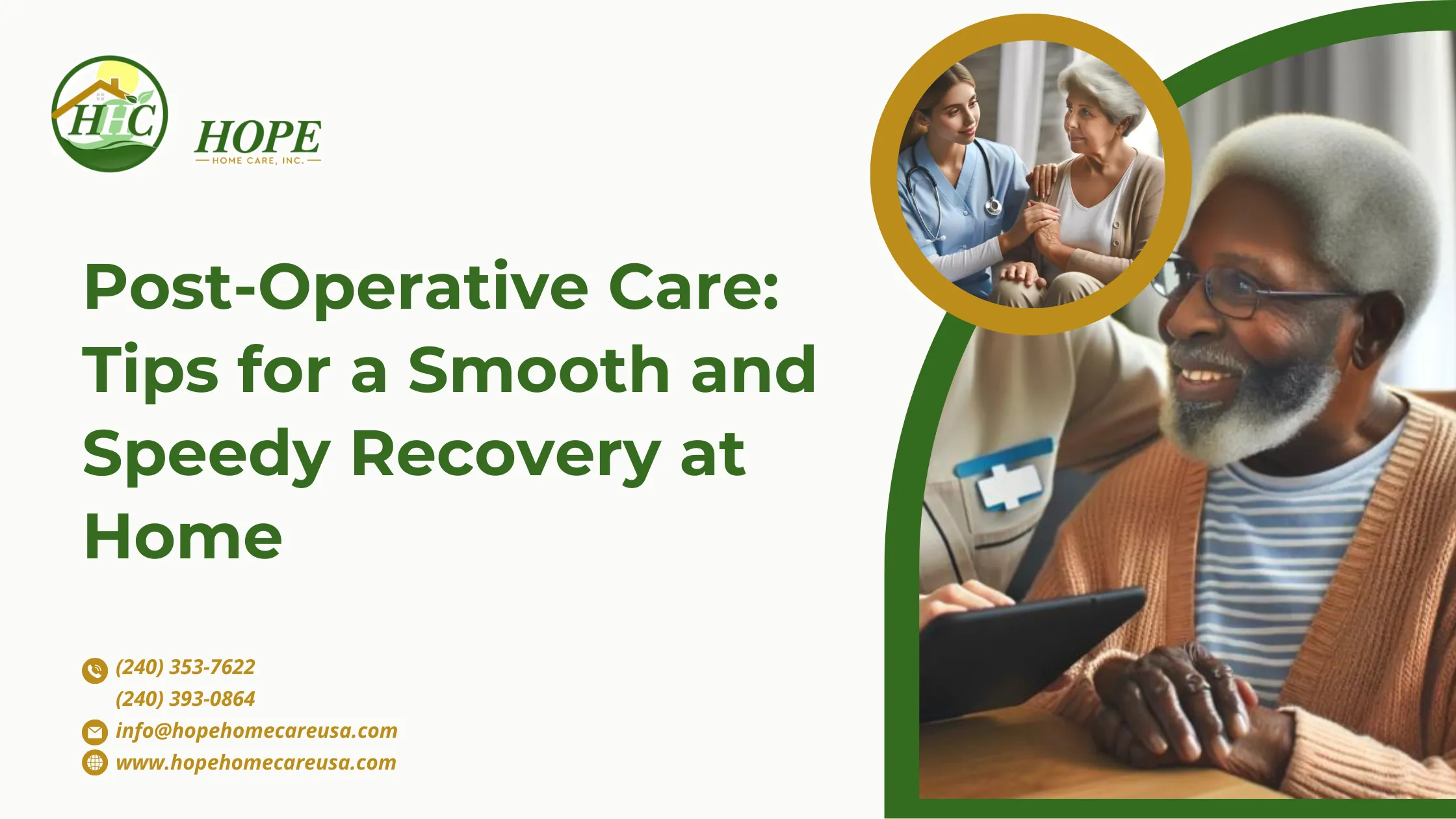Recovering from surgery can be a daunting experience, especially when transitioning from hospital to home care. Post-operative care is crucial to ensure a smooth and speedy recovery. In this blog, we will provide essential tips and insights to help you or your loved ones recover effectively at home.
Preparing Your Home for Recovery
1. Create a Comfortable Recovery Space
Before coming home from the hospital, set up a comfortable and accessible recovery space. Ensure that the area is clean, well-organized, and equipped with necessary supplies such as medications, medical equipment, and personal items. A well-prepared space helps reduce stress and promotes healing.
2. Follow Your Doctor’s Instructions
Your doctor will provide specific instructions regarding medication, wound care, diet, and physical activity. Adhering strictly to these guidelines is vital for a successful recovery. Keep a checklist of these instructions and refer to it regularly.
Medication Management and Pain Control
1. Manage Medications Carefully
Proper medication management is essential during the recovery period. Keep track of all prescribed medications, dosages, and schedules. Utilize tools like pill organizers or medication management apps to ensure you never miss a dose.
2. Control Pain Effectively
Pain management is a critical aspect of post-operative care. Take pain medications as prescribed and don’t hesitate to communicate with your healthcare provider if you experience unusual pain or side effects. Effective pain control aids in faster recovery and better mobility.
Nutrition and Hydration
1. Maintain a Balanced Diet
A balanced diet rich in nutrients supports the healing process. Incorporate a variety of fruits, vegetables, lean proteins, and whole grains into your meals. Avoid processed foods and stick to a diet plan that meets your specific post-surgery nutritional needs.
2. Stay Hydrated
Proper hydration is vital for recovery. Drink plenty of water and avoid sugary or caffeinated beverages. Staying hydrated helps in healing and prevents complications such as urinary tract infections.
Physical Activity and Rest
1. Gradually Increase Physical Activity
Follow your doctor’s recommendations on physical activity. Gradually increasing movement helps in preventing blood clots and improves overall circulation. Gentle exercises like walking can be beneficial, but avoid strenuous activities until fully recovered.
2. Prioritize Rest and Sleep
Rest is crucial for recovery. Ensure you get plenty of sleep and take naps if needed. Creating a quiet and comfortable sleeping environment can significantly improve the quality of your rest.
Emotional Support and Assistance
1. Seek Emotional Support
Recovery can be emotionally challenging. Don’t hesitate to seek support from family, friends, or professional counselors. Emotional well-being is just as important as physical recovery.
2. Utilize Professional Home Care Services
Consider professional home care services, like those offered by Hope Home Care Inc., for additional support. Skilled caregivers can assist with daily activities, medication management, and provide companionship, ensuring a comprehensive recovery plan.
Conclusion
In summary, effective post-operative care involves a combination of proper preparation, medication management, balanced nutrition, physical activity, rest, and emotional support. By following these tips, you can ensure a smooth and speedy recovery at home. For more personalized care and support, reach out to Hope Home Care Inc. For more details, check their Google business profile.

